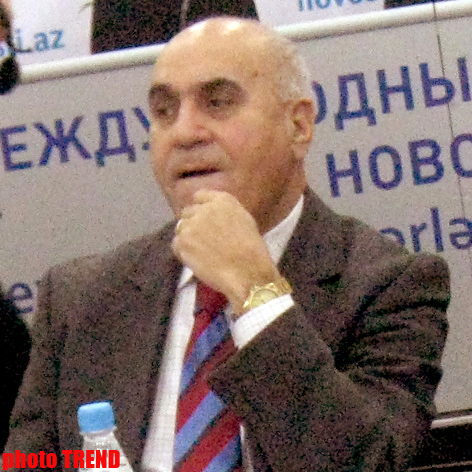Azerbaijan, Baku, Aug.21 / Trend, M.Aliyev /
If the temporary opening of the border between Turkey and Armenia is followed by some progress in resolving the Nagorno-Karabakh conflict, the issue regarding the border can smoothly move to the resolving issues of normalizing Turkish-Armenian relations, politologist Rasim Agayev believes.
Earlier, it was reported that Turkey does not exclude the possibility of a partial and temporary opening of the Turkish-Armenian border Sept.11- 17, 2010 as part of NATO military exercises planned in Armenia. But Turkish Foreign Minister Ahmet Davutoglu denied this information
Diplomatic relations between Armenia and Turkey have been broken due to Armenia's claims of an alleged genocide, and its occupation of Azerbaijani lands. The border between them has been broken since 1993.
It seems that these exercises are screen of non-standard approach to that to unblock the situation, which the conflicting sides (Armenia and Azerbaijan) faced," Agayev told Trend today. According to him, West hopes to gain impetus in resolving the Armenian-Azerbaijani conflict through opening the Armenian-Turkish borders during the exercises.
Agayev said, West's cherished dream is observed in the planned military exercises. He believes that the opening of borders for the period of the NATO exercises is the way, against which the Turkish public, who are against establishing diplomatic relations with Armenia, can say nothing.
The conflict between the two South Caucasus countries began in 1988 when Armenia made territorial claims against Azerbaijan. Armenian armed forces have occupied 20 percent of Azerbaijan since 1992, including the Nagorno-Karabakh region and seven surrounding districts.
Azerbaijan and Armenia signed a ceasefire agreement in 1994. The co-chairs of the OSCE Minsk Group - Russia, France, and the United States - are currently holding the peace negotiations.
Armenia has not yet implemented the U.N. Security Council's four resolutions on the liberation of the Nagorno-Karabakh region and the occupied territories.






